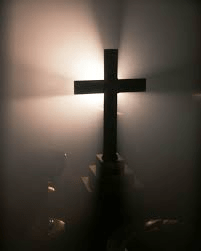Dismantling White Privilege in Institutions of Theological Education

I have grown weary of liberal racism.
I have grown especially weary of Christian liberal racism.
White supremacy is insidious. It enables, sheds tears, and delays to deny. This sin is so exhausting. Much time is wasted explaining, returning to the scene of the crime.
This country, for whatever good it’s worth, is foundationally white supremacist. It is in the air and the furniture. Sometimes I’m tempted to wash my hands and be done. I remain because I am reminded of Bob Marley’s question, “I and I build the cabin and I and I plant the corn. Didn’t my people before me slave for this country?” This is my country. I am here and I am hopeful because love compels me to stay. I am only hopeful and loving because of Jesus Christ.
One of the greatest experiences of betrayal in my life thus far has been realizing that the American church abets white supremacy. For me, this realization occurred during my years in seminary. Seminary is arduous enough as is, but dealing with this reality made it feel insurmountable. I feared for what church would look like, what it might become if its leaders are unable or unwilling to address and dismantle systemic racism. The only consolation to my fear is the understanding that the failings of the American church can never destroy God’s own Church. Whether we get our act together or not, the gates of Hell will not prevail. We will either get right or get left.
Still, we have a long way to go.
___________________________________________
I will never forget standing in my seminary’s bookstore, looking around at the shelves, and realizing that someone could matriculate there and never have to learn about people like me.
___________________________________________
If we are truly one in Christ, white brothers and sisters, when will you acknowledge the injury? This is more than sympathy; I have never needed your pity. It is different than empathy; I do not need you to understand. However, before we can have any legitimate talk of reconciliation, there must be acknowledgment of wrongdoing. The course is confessional.
 The ‘grand central station’ of the seminary is the classroom. The identity, hidden curriculum, and ethos are malleable in the classroom. It is here where the institution’s reputation and legacy live. Confession, then must begin to become in the classroom. Institutions must reverse the electivizing that happens to people of color and all groups that are in some way the ‘other’ in a culture of white supremacy. As it stands, academia creates ghettos.
The ‘grand central station’ of the seminary is the classroom. The identity, hidden curriculum, and ethos are malleable in the classroom. It is here where the institution’s reputation and legacy live. Confession, then must begin to become in the classroom. Institutions must reverse the electivizing that happens to people of color and all groups that are in some way the ‘other’ in a culture of white supremacy. As it stands, academia creates ghettos.
I will never forget standing in my seminary’s bookstore, looking around at the shelves, and realizing that someone could matriculate there and never have to learn about people like me. It is not enough to have people of color proverbially stuffed into the bottom of the syllabus; this call to action must permeate every discipline in order to do the work of dismantling white supremacy.
Some may argue (and many have) that scholars of color simply are not in these fields. I challenge that crisis by noting it as an opportunity to recruit students of color with scholarships, to seek out young faculty with incentives, and to make these institutions of theological education conducive to the flourishing of inclusivity. This problem must be confronted with intentionality and without reservations. Tokenism must die so that community can live.
___________________________________________
If we are truly one in Christ, white brothers and sisters, when will you acknowledge the injury?
___________________________________________
Scholarship should never exist for its own sake. A seminary best prepares future leaders of the church by affording them opportunities to engage their time and context. Leaders cannot thrive in a vacuum, and leadership is not reactionary. A confessional approach incorporates and prioritizes justice-seeking work.
 Seminaries must foster intentional relationships that transcend charity and mercy ministries. Those works are noble at best, and they often stifle one’s ability to have authentic cultural exchanges. White students need to work with black people and other people of color in leadership positions. How else will they ever overcome white supremacy and internalized racism?
Seminaries must foster intentional relationships that transcend charity and mercy ministries. Those works are noble at best, and they often stifle one’s ability to have authentic cultural exchanges. White students need to work with black people and other people of color in leadership positions. How else will they ever overcome white supremacy and internalized racism?
To speak frankly, if collaboration with outside organizations where black people are in leadership is a challenge, institutional leadership is not doing enough. Cultural immersion is vital – for students of all racial ethnic backgrounds. I sympathize with people who grew up in homogeneous communities. Yet I believe that those who seek to lead the church must view such a homogeneous background as a weakness and humbly learn across this difficult racial divide. Cultural immersion does not mean treating an internship or tutoring program like “study-abroad.” It is a humble partnership in which one acknowledges that they cannot lead without serving. This humility must become the lens through which seminarians seek vocational preparation. Students preparing to serve the Church must learn to meet the needs of their whole community – not just the predominantly white community of their church or organization.
I have no desire to live my faith in isolation. I take the Great Commission in Matthew 28 seriously. And what I have found, as I have engaged in this intentional living, is that God will call you to love people you do not like. These relationships affect your exegetical lens. There are moments when you are the Syro-Phoenician woman who teaches Jesus to open his arms, and there are times you are the Pharisee.
___________________________________________
Those who seek to lead the church must view a homogeneous background as a weakness and humbly learn across the difficult racial divide.
___________________________________________
In my final year of seminary, I worked with other students to draft a letter seeking to help our institution begin to take concrete measures toward participating in God’s work of dismantling white supremacy. We believed that the seminary could use its existing systems to their full potential in order to become the place that it is called to be.
 The letter makes it clear that racism is not a distant evil. Nor is the church an impotent entity that yearns for justice. The American church knows white supremacy intimately. Feigns of ignorance are mere devices meant to deflect and protect this standard.
The letter makes it clear that racism is not a distant evil. Nor is the church an impotent entity that yearns for justice. The American church knows white supremacy intimately. Feigns of ignorance are mere devices meant to deflect and protect this standard.
The letter was written with a loving rage. Who can honestly observe the plight of black people in the United States and not feel anger? We who have witnessed the modern day lynchings of Sandra Bland, Tamir Rice and too many others. We who see microaggressions invite a death from a thousand cuts. We must confess: white spaces are violent spaces.
I am thankful for the strength to organize and push against the evil. We organized with the understanding that this was not merely for ourselves but also for the nameless, faceless people who were broken by the institution and those who viewed graduation from such a place as an impossibility.
___________________________________________
God has skin in this game: the skin of Jesus of Nazareth pierced by nails; the skin of Emmett Till hanging from a tree, the skin of Michael Brown, Tamir Rice, and so many others ripped apart by bullets.
___________________________________________
I grieved for classmates of mine who could not understanding this calling. The call for confession made them defensive and entrenched. Some did not appreciate the blame being laid at the seminary’s feet.
 Work for God’s justice in a sinful, fallen world is not without conflict. And yet, it is a conflict born of deep love. If I did not care about this school or the American witness to Christ’s Lordship, it would be easy to watch it all burn. But I do love my seminary, and love requires action. It is difficult to remain on the sidelines when you hear the Lord knocking at your door. I am convinced that God’s love invites us to live justly, to participate in God’s life. Faith compels us to put skin in the game.
Work for God’s justice in a sinful, fallen world is not without conflict. And yet, it is a conflict born of deep love. If I did not care about this school or the American witness to Christ’s Lordship, it would be easy to watch it all burn. But I do love my seminary, and love requires action. It is difficult to remain on the sidelines when you hear the Lord knocking at your door. I am convinced that God’s love invites us to live justly, to participate in God’s life. Faith compels us to put skin in the game.
Confession is the start, but repentance necessitates action. The God revealed to us in Jesus Christ has skin in this game: the skin of Jesus of Nazareth pierced by nails; the skin of Emmett Till hanging from a tree, the skin of Michael Brown, Tamir Rice, and so many others ripped apart by bullets.
In God’s holy work of dismantling white supremacy, where is your skin?
*****
AUTHOR BIO: Chris Burton lives in Brooklyn with his wife Brianna and their son, Coltrane. You can read more from Chris at lupusawhadat.com and hear his shows at soundboothradio1.com. He’s also on Twitter @Chrisb06 and Instagram @dibaddestchaplain.
Read the Open Letter from Concerned Students of Union Presbyterian Seminary!
Read more articles in this issue Call to Confession: Race, White Privilege and the Church!





Unbound Social